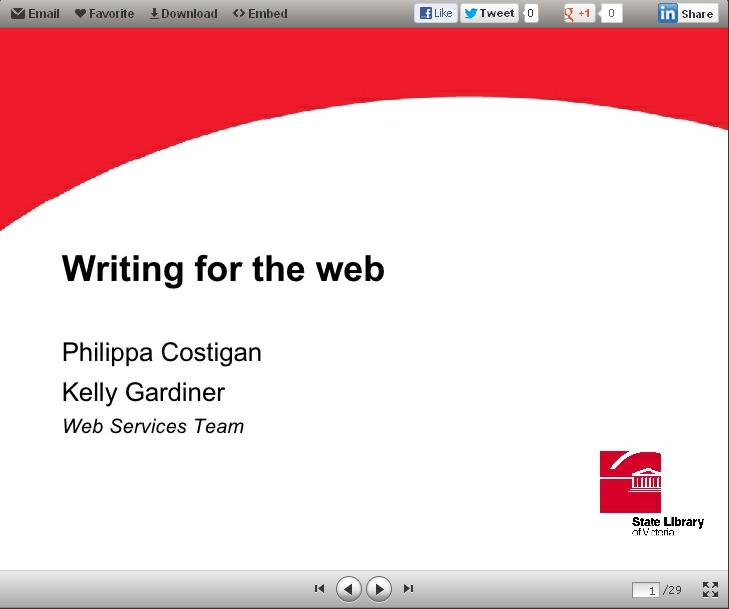I don't know anyone with a Ph.D in Writing for Web, but I know a lot of people who get thrown into online publishing without any previous experience - our student organization webmasters and our staff CMS editors, for example! Because so many of us have learned by doing, it's important to keep improving our skills and adapting to new trends. To get started, try a Google search for "online writing tips" or "writing for web guide" and see what you find.
Here on the Technology Blog, I'll start updating you every few weeks with some tips and resources for producing better content. This week, let's look at two critical facts about Internet use.
#1: We only scan web pages.
People don't read. Researchers use eye-tracking software to follow a person's eye movements while s/he's looking at a website. These studies tell us several things:
- People typically scan the left side of a content block, quickly looking at the first few words of a headline and moving down the page looking for relevant words (keywords).
- The scanning process takes only a few seconds.
- We tend to scan large fonts (e.g., headlines, section titles).
- We tend to focus on smaller fonts (e.g., body text).
- When paragraphs are too long, the eye will scan further down the page for more keywords
#2: The Internet is an active medium.
Specificity is key. While you may enjoy spending an hour with the Sunday paper, you probably don't spend that kind of time on a web page. Online, we usually need a specific piece of information from a site.
How have you used a website recently? What kind of information were you looking for?

Examples: What time does a business close? What's the deadline for this application? What should I do on my trip to New York? What treatment options are available for high blood pressure? Where can I buy movie tickets online? Who can I call about my power bill?
These types of questions have specific answers. Some of the answers may be lengthier than others, but ultimately, when we go online, we are looking for something in particular.
When we encounter a page filled with long paragraphs and no headlines, many users will return to our search results and try another link. Think about what information our prospective students, current students, staff, faculty, peers and other community members might be looking for on your website.
![]() How can you improve your copy to help your users find what they're looking for?
How can you improve your copy to help your users find what they're looking for?
While I prepare some tips and tricks for future blog posts, take a look at this presentation, which was prepared for the State Library of Victoria, Australia.
Emily